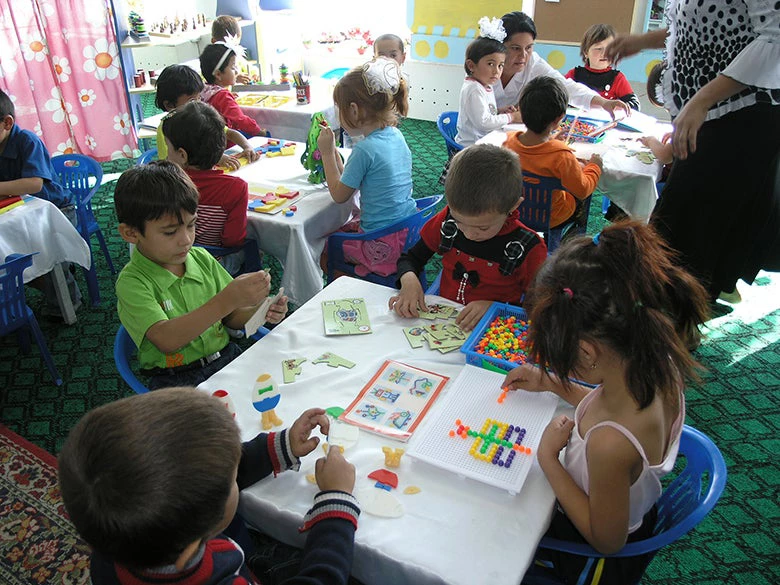
“Working on the World Development Report 2015 and subsequently in the eMBeD Unit mainstreaming the use of behavioral insights within World Bank’s projects, has also been very helpful when dealing with my kids”, I told a class of undergrads where I had been invited as a speaker. The first question I was asked in the open Q&A was whether I could elaborate on that statement. How had behavioral insights helped me with my kids? Students wanted to know more. The fact that college students picked up on this sentence out of an hour-long conversation on my experience with behavioral work at the World Bank struck me.
Define the problem in terms of a behavior. Ask how rather than why. Change the frame, the perspective of looking at a problem. Diagnose the constraints. Test and adapt your interventions. These are some of the messages we teach in our workshops on behavioral insights designed for our colleagues and counterparts in governments. They are simple, yet very powerful, and they have certainly helped me working on projects in a wide range of places such as Brazil, Ethiopia and the Maldives, but also, unexpectedly, in dealing with my children.
On a recent Saturday afternoon, my ten-year-old girl was annoyingly repeating over and over, very upset, “Why has the Phys Geo teacher asked us to memorize the names of the islands in the Caribbean? There are so many! They have difficult names!” My first thought was to tell her to….well…suck it up and learn irrespective of why.
But I knew from experience that if I told her just that the situation would escalate. Then, an idea hit me. That morning I had listened to a podcast in which Dan Kahneman was talking about theories of behavior change. It had made me think about the importance of changing frame in looking at problems, of identifying the constraints that individuals face to do something. And I remembered the UK BIT’s EAST framework for intervention design: Make it Easy, Attractive, Social, and Timely.
With this in mind, I got some colorful index cards and wrote the initial(s) of each of the names of the Caribbean islands on one side and the full name on the other side. I went back to my daughter telling her that we could play a game with those cards. She loved it. Her annoyance was gone, we played, she… beat me. And she ended up memorizing the names of all the islands though on the day of the test she found out that she was supposed to learn only the biggest 13!
It is not always straightforward. What works with some kids, doesn’t work with other. For example, with some you can use reverse psychology: DO NOT CLEAN UP YOUR TOYS! With other kids this statement backfires: Mom, why are you upset that all my toys are still around? You told me NOT to clean up!!! Similarly, what works in Brazil might not work the same way in the Maldives. But figuring out this is part of the learning process, of identifying through trial and error what works in a specific context.
Most of the time we don’t have clear ready-made solutions for success, working in development or parenting (and without getting into the measurement issue of what is success!). But we have a process that can guide us, one that entails changing frames, thinking carefully about constraints, trying things out, assessing the extent to which what we do works, then learning and adapting. This is crucial because it can be used to take on any challenge.
Of course, in the end what really counts are the results. But it is extremely important how we get there. Because while the solutions can be context specific, the process can be replicated widely. And so, while colorful index cards are not likely to be of much help when dealing with the question “Why can’t I have a smartphone, if *all* my friends at school have it??”, reframing and testing different options can help with this too (it has, so far at least). Similarly, each person in their own field of work can find their own answers and solutions. It can be very empowering.
Working in development and raising kids present new challenges every day. There are so many unknowns, so many failed attempts, so many mistakes, even when one has the best of intentions. But both are exhilarating, fulfilling, and worthy of the efforts. Indeed, I feel I am more equipped to take on the challenges, both when thinking about addressing issues like chronic poverty in Brazil and youth unemployment in the Maldives, or about the prospect of dealing with four teenagers in the 21st century.
They are daunting, and, at times, overwhelming. But I am confident that it’s a good start to ask the right questions, to look at things from different angles, to try things out, and to learn and adapt. Behavioral science has given me some tools that can help me. Hopefully, the results will be fine, both with my work and with my daughters.
Don’t forget to Enroll here to get fresh Behavioral Science news from the World Bank.


Join the Conversation